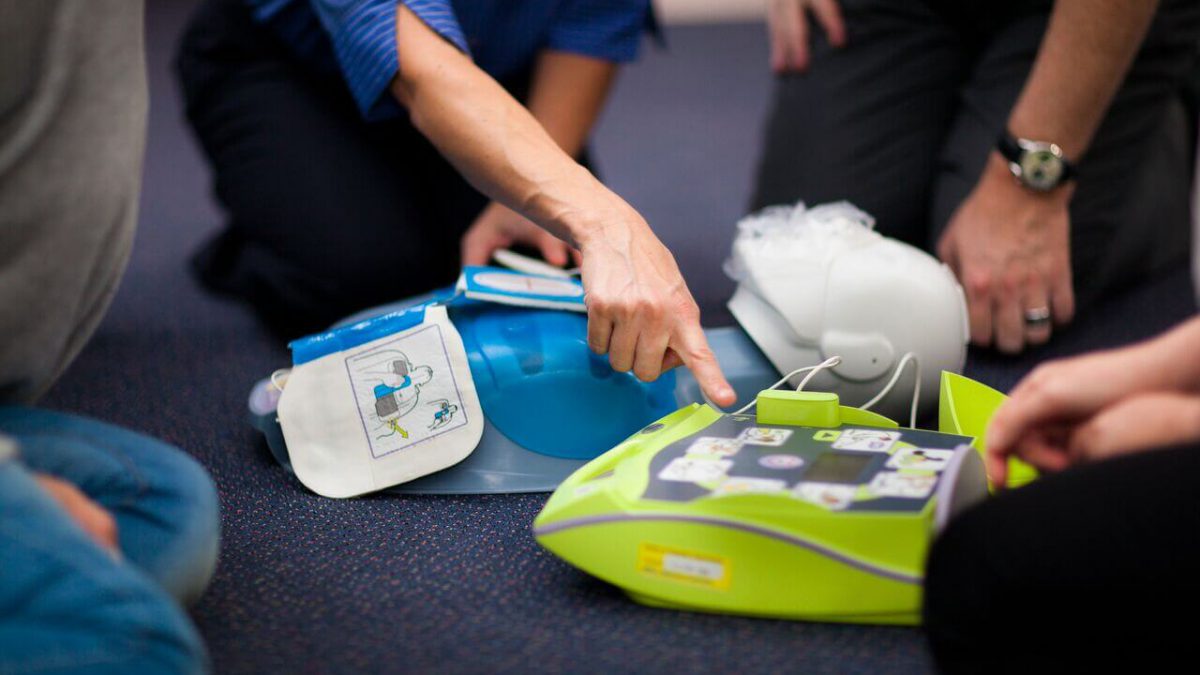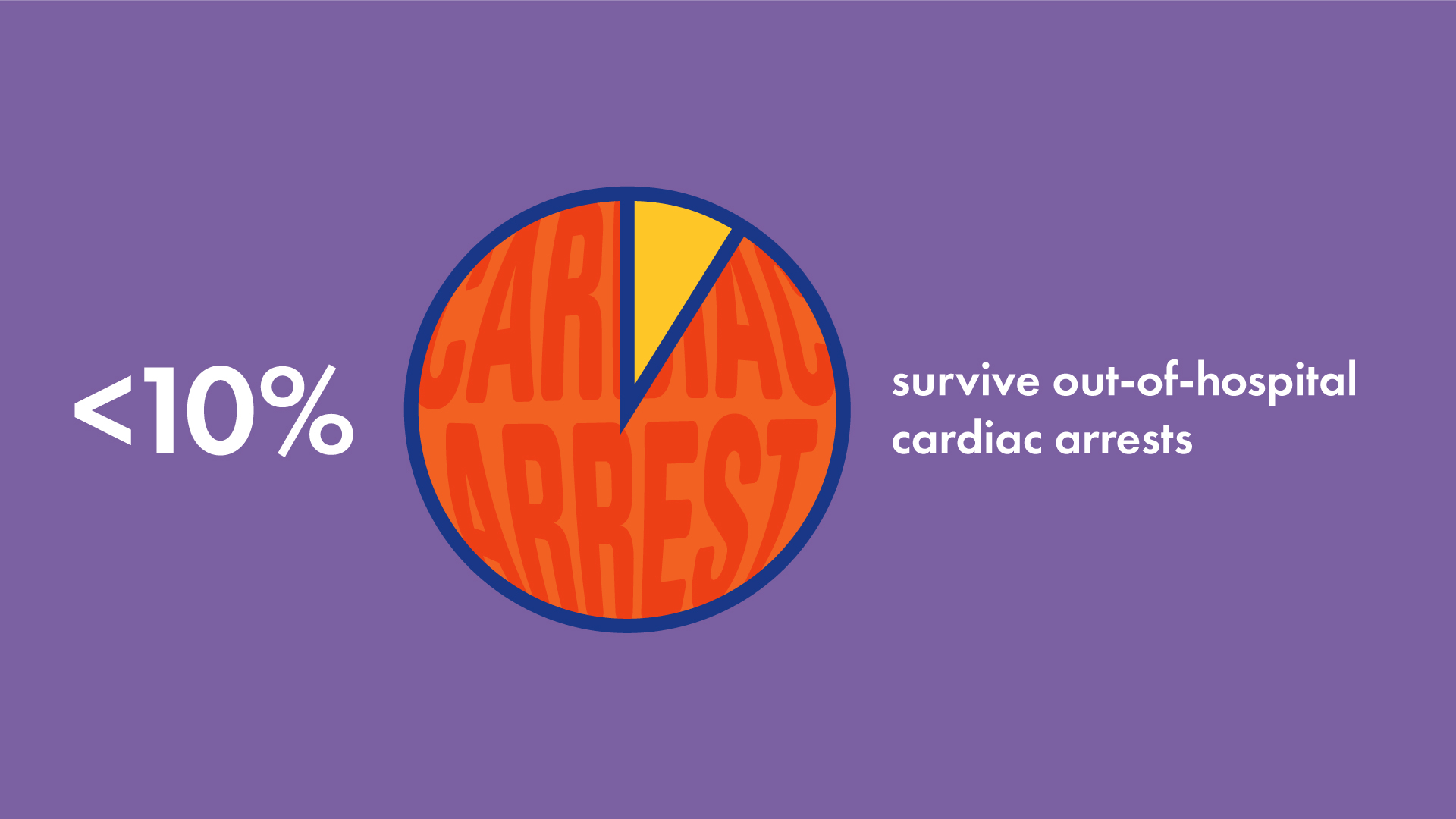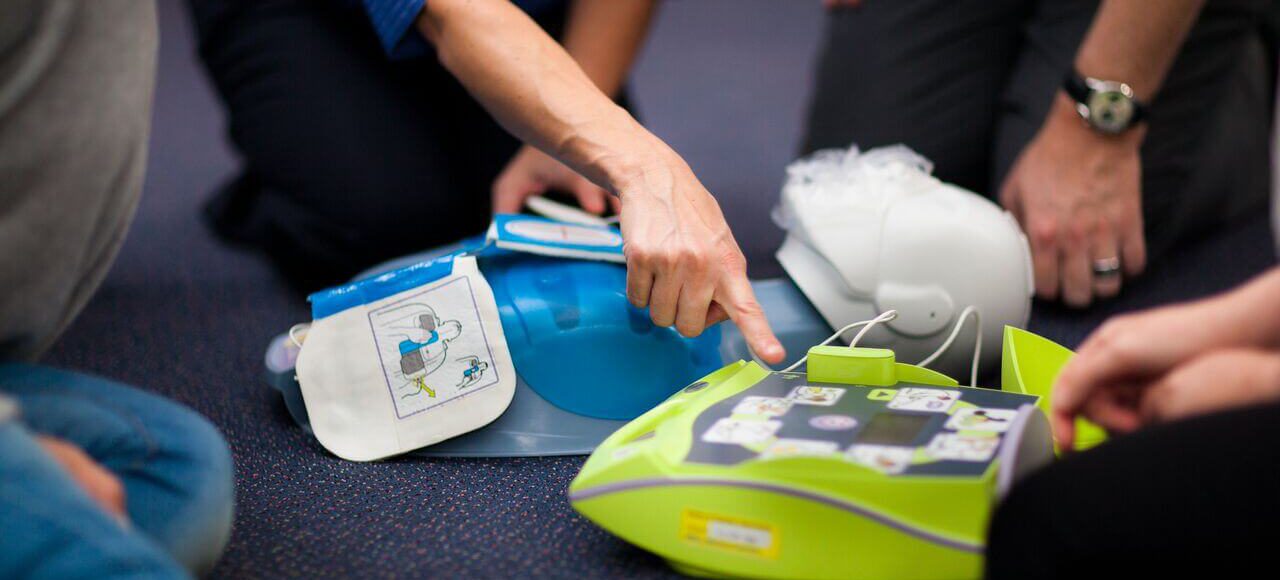What do Baa Baa Black Sheep and Staying Alive have in common?
When a person goes into cardiac arrest, their chances of recovery and survival drop 10% after every minute without defibrillation. And with 4 cardiac arrests occurring out of hospital every hour in Australia, that’s a pretty scary statistic.

What if one happens in your workplace? Less than 10% of out-of-hospital cardiac arrest patients survive their emergencies, and having well-trained first-aiders ready to respond – well before emergency services arrive – is imperative.
So, first aid trainers are innovating – using music as a tool to better prepare Australian workplaces with well-prepared first aid techniques, helping them respond and provide life-saving CPR (cardiopulmonary resuscitation) and defibrillation within those vital first moments after a cardiac arrest.

What’s music got to do with it?
Now, you may have heard of the power of music in relation to education and memory. Studies have shown that music increases recall and understanding.
It’s no wonder, therefore, that incorporating music into first aid training has helped improve CPR education and recall around the world, and revolutionised the retention of CPR skills for first-aiders who may have otherwise struggled to remember their training in an emergency.
But it’s not just about the music helping course participants recall their training in general. It’s about how the actual tempo and rhythm of the song aligns perfectly to the CPR rhythm itself. Teaching CPR compressions using songs helps first-aiders remember more intangible knowledge, like the timing of the compressions.
The Baa Baa Black Sheep method
For over 25 years, Premium Health has been using songs to train its participants. After completing a masters research thesis, I attended a large CPR conference in the USA and presented my findings about songs and CPR. After this conference and our publishing of the findings, the rest of the world jumped onto the singing wagon too, and songs like the Bee Gee’s “Staying Alive” have also been added to the CPR repertoire.
Our company holds the copyright to the Baa Baa Black Sheep nursery rhyme method. Taught to kids from an early age, the song (and its associated tempo of about 100 beats per minute) is remembered well by all ages and our neural pathways connect with our muscle memory, making it very easy to perform CPR at the right continuous speed.
One Premium Health First Aid course participant wrote to us saying “we run a café and one of my young casual staff members was recently talking about her experience doing first aid training and said she found CPR a very difficult skill to remember.
“Lucky for me, I did my training in CPR using the Premium Health method and surprisingly 20 years later, I instantly recalled the mnemonic technique using Baa Baa Black Sheep that I had been taught.
“I can’t always remember what happened last week, but I can remember how to perform CPR and help someone survive thanks to [this] training.”
Frequent re-training is key
Good CPR skills that truly improves outcomes for patients in cardiac events is not as simple as a once-off first aid certificate. CPR skills need to be refreshed every year – the more recent and hands-on the training is, the more skills and knowledge the first aider retains. And it’s not just about frequent training: it’s about innovative training.
Booking a refresher CPR course every year for your workplace with our experienced nurse and paramedic trainers is the key to true peace of mind. Now that you’ve got Baa Baa Black Sheep stuck in your head for the rest of the day, assess whether your business is overdue for a new CPR course.
Do the very best for your employees by registering your interest in a Premium Health first aid course today.
